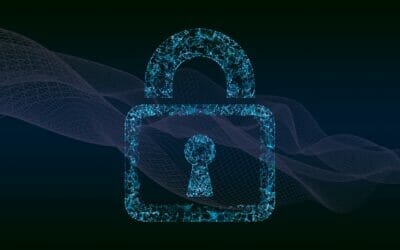
Due to easy internet access and acceptance of cloud technology, new businesses are taking place now and then.
However, as companies become digitized, the world becomes familiar with the popular term cybersecurity.
To flourish and sustain the present business environment, these entities must deal with sensitive information related to clients, financial accounts, and whatnot.
Cybersecurity protects these modern businesses from multiple cyberattacks like phishing emails, ransomware, data breaches, APTs, and so much more.
Cyberattacks have significantly increased, so cybersecurity has become a top priority for all businesses.
This post briefs on best practices for cybersecurity that modern-day businesses can embrace to secure their precious information from hackers. Let’s get into it!
Best Practices for Adopting Cybersecurity
Fixing cybersecurity should be the responsibility of business executives and IT departments. Otherwise, they’re going to lose what they build.
These below-mentioned points guide them towards adopting cybersecurity for their business:
Collaboration between IT Departments & Business Leaders
This can give businesses an edge over potential cyberattacks and make them ready to tackle risks in the first place.
With the guidance of IT departments, business leaders can gather insight into what strategies should be in place to align with their company’s security measures.
Adoption of a Zero-Trust Security Model
By adopting a zero-trust security model, businesses are ensuring that no one, whether it’s a company insider or external threat, gets access to the company’s valuable assets by default.
It verifies every access request and avoids getting stuck in internal or external threats.
Implement Intrusion Detection and Prevention Systems (IDPS)
A security system that keeps an eye on network traffic for possible hostile activities is called an IDPS. By spotting odd activity or illegal attempts to access systems, it then immediately identifies threats and works to stop or lessen them.
Because it reacts to security issues instantly, it is highly successful in strengthening defenses against cyberattacks.
Use AI-Powered Threat Detection
It is like modern problems require modern solutions. This AI-powered threat detection tool or software helps businesses recognize patterns so that they can prepare themselves to identify and reduce threats in real-time.
These AI detection tools leverage machine learning and deep learning algorithms to analyze network traffic and learn from past attacks, ensuring potential threats get neutralized before they create any vulnerabilities for the company.
Train Employees
Businesses need to provide cybersecurity-dedicated training to their employees to ensure seamless cybersecurity adoption.
In this training, their employees learn real-world solutions through consistently executing security practices.
A bunch of well-trained cybersecurity employees can mitigate risks and ensure a smooth workflow for any business.
Back-Up Critical Data Regularly
To guard against data loss from natural disasters, hardware malfunctions, or cyberattacks, a strong data backup plan is essential.
These must be routinely automated and stored in safe offsite places so that important data may be easily recovered in the event that it becomes necessary.
Backups are trusted to provide business continuity by minimizing downtime and sensitive data loss during a crisis.
Monitor third-party users and applications
Most businesses are bound to integrate with third-party users and applications to stay relevant and competitive in the market.
That’s why it’s important to monitor third-party users and applications, as they have access to the businesses’ systems and data, which can be used to perform malicious activities.
Businesses can restrict access to sensitive information and provide one-time passwords by monitoring them, further preventing businesses from exposing themselves to any kind of breaches.
Why Does Cybersecurity Matter?
Any digital business would face some kind of cyberattack in some way. These attacks become the reason for data breaches, which can result in losing money, trust, reputation, and even a business shutdown in some cases.
In this vulnerable digital environment, cybersecurity emerges as an industry sensation that provides businesses with these benefits:
- Ensures Business Continuity
- Prevents Businesses’ financial losses
- Maintains businesses’ customer trust
- Complies with key regulations
- Enhances Businesses’ competitive advantage
- Protects Business’ Reputation
- Supports Innovation
- Strengthen Business’ Security Architecture
- Mitigate Business Risks
Conclusion
So, it’s quite obvious that cybersecurity is a necessity that requires an ongoing commitment to business security and growth.
Businesses don’t have options other than to be vigilant and secure and try to keep the odds in their favor.
In addition to these practices mentioned for adopting cybersecurity, businesses should check out practices such as updating and enforcing security policies, installing security updates, using strong passwords and multi-factor authentication, conducting regular cybersecurity audits, using a VPN for remote work, and many other to be on the safe side and secure their data integrity, systems, and networks.
One of the platforms that use cybersecurity best practices to stay safe and secure is sportsbet.io and maintain its reputation and trust in its gaming domain.
Ready to get started with these cybersecurity practices?














